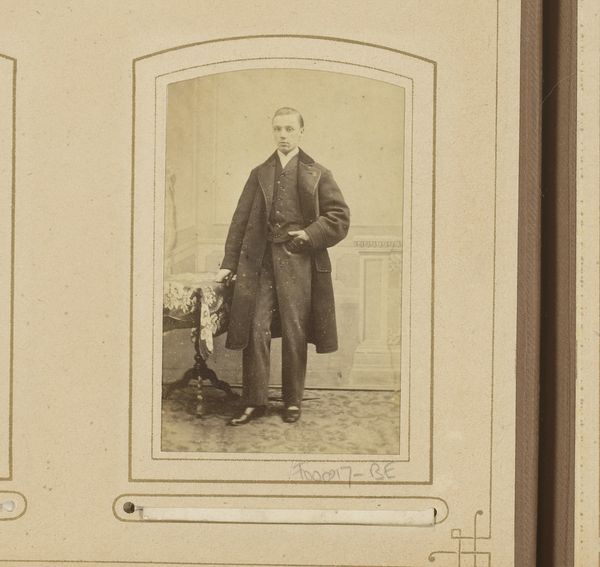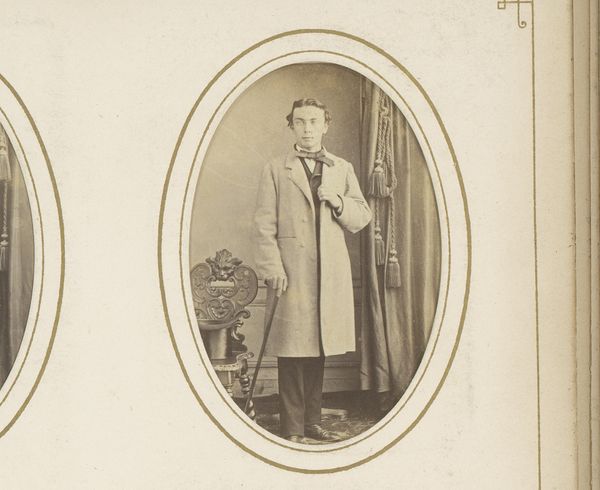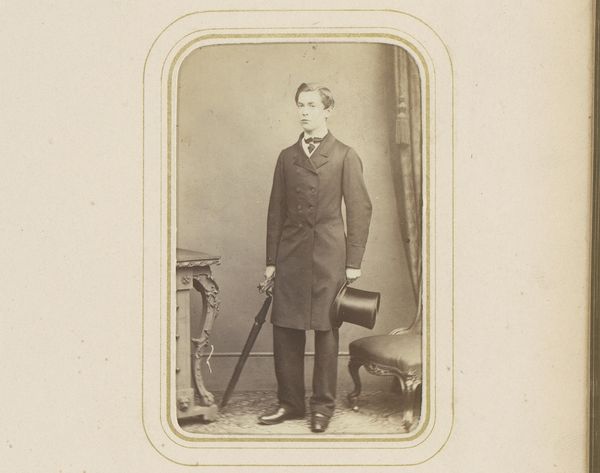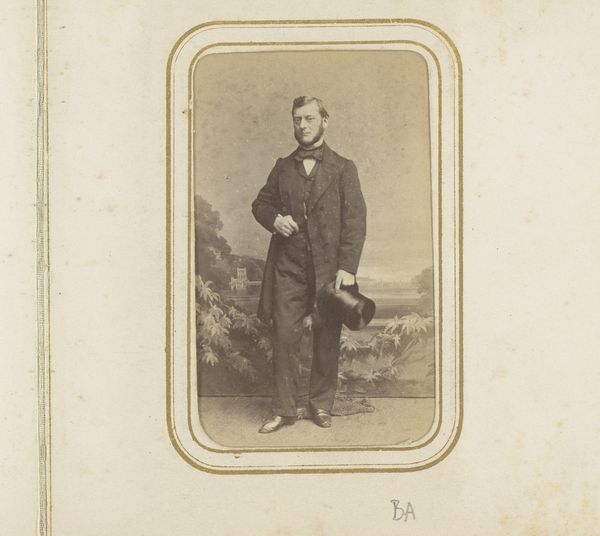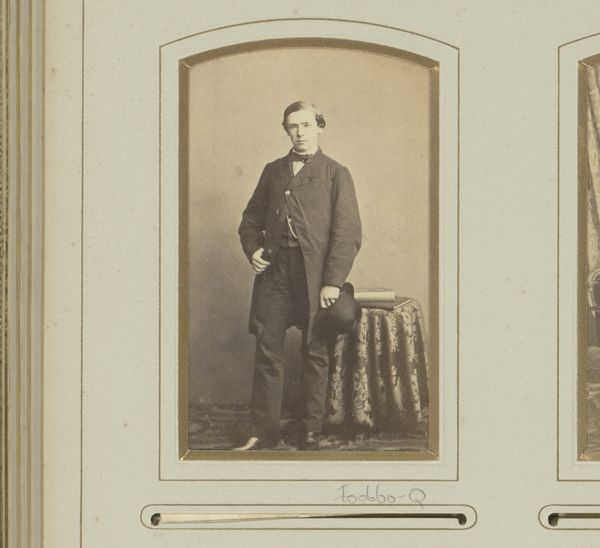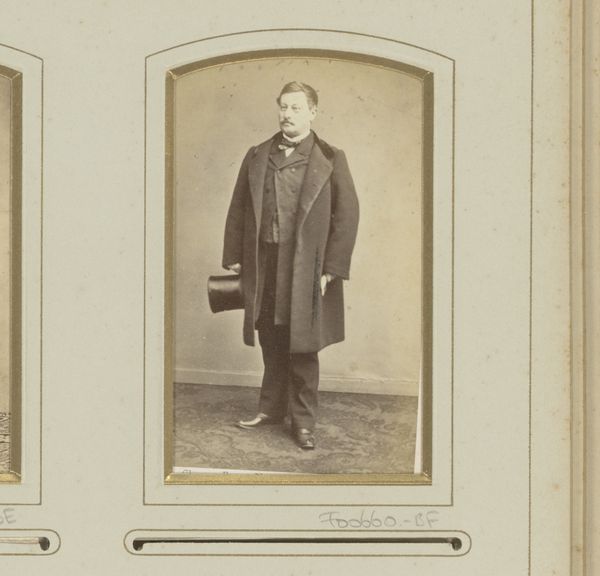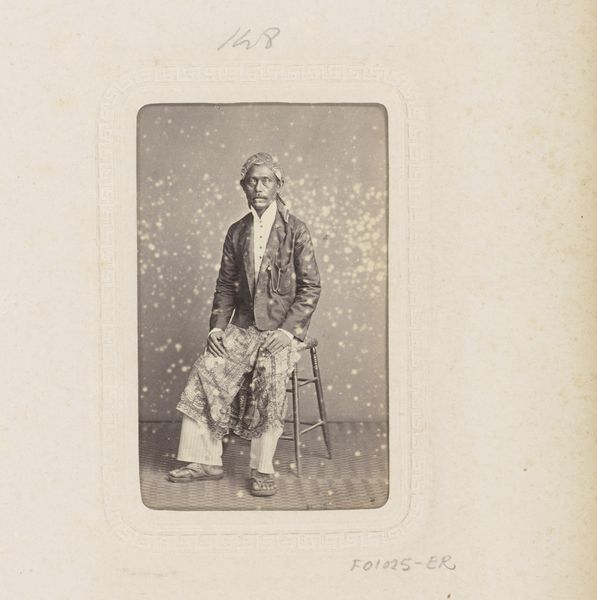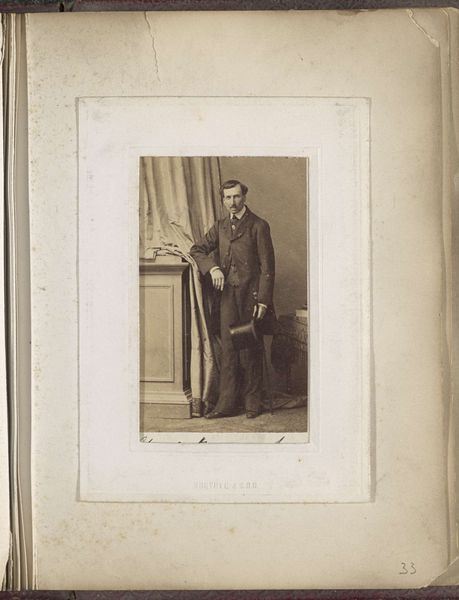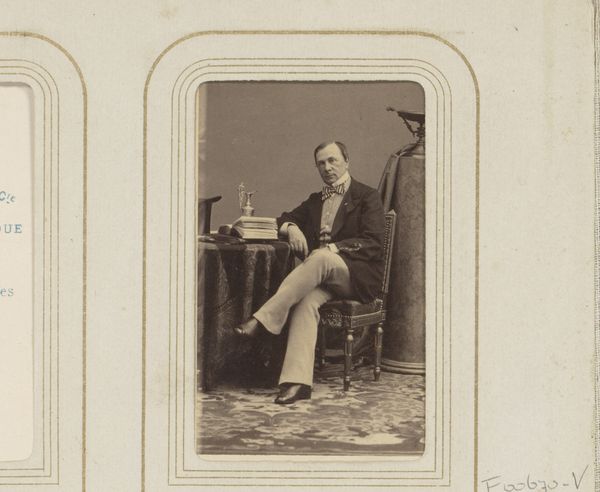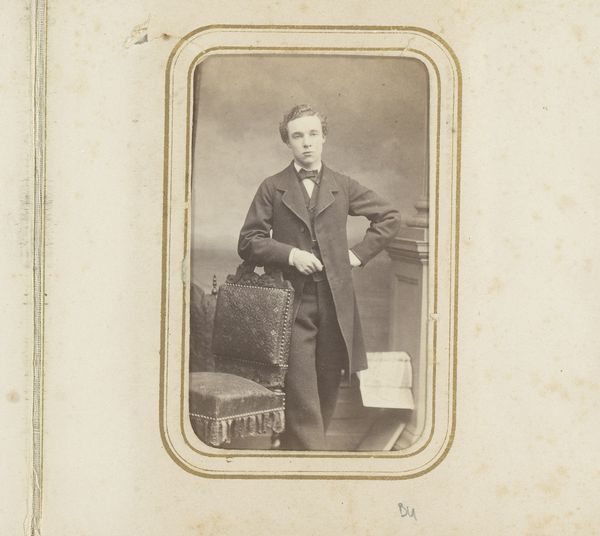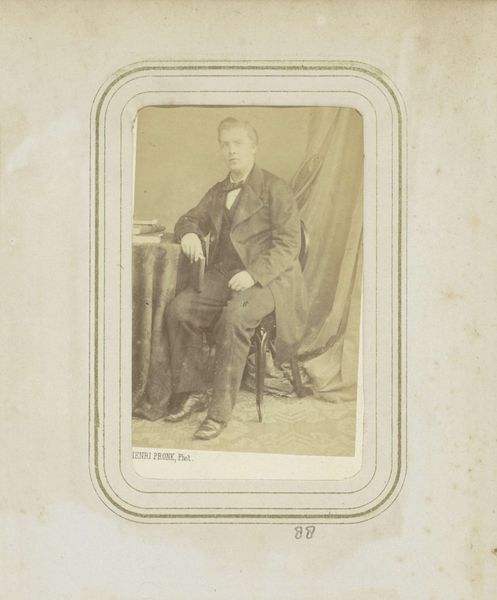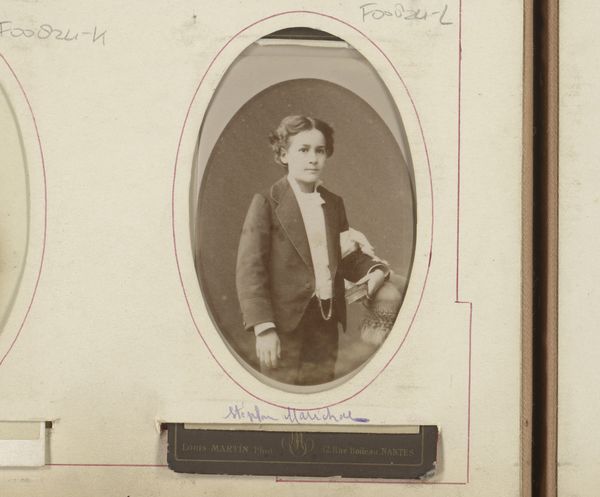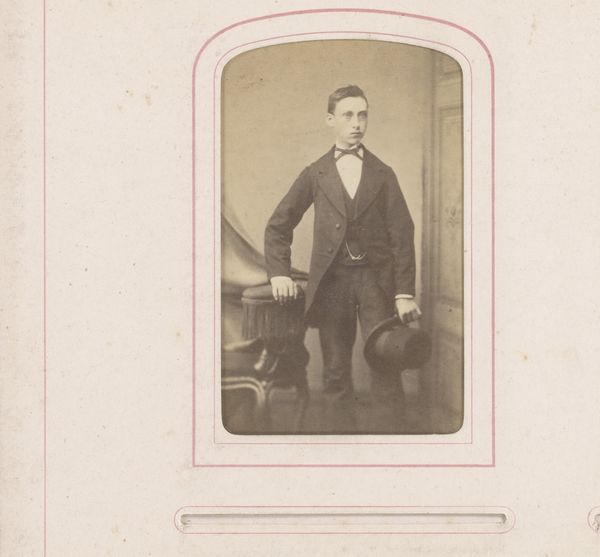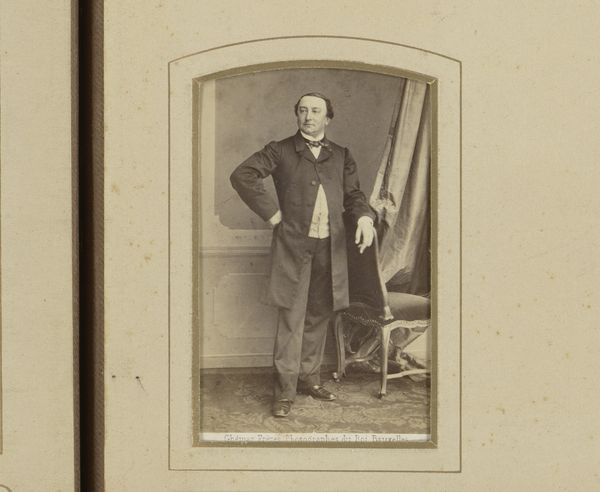
Portret van een jongen in het uniform van het Burgerweeshuis te Amsterdam c. 1875 - 1910
0:00
0:00
andriesjager
Rijksmuseum
photography
#
portrait
#
photography
#
historical photography
#
19th century
#
realism
Dimensions: height 87 mm, width 54 mm
Copyright: Rijks Museum: Open Domain
Andries Jager made this photographic portrait of a young boy in the uniform of the Amsterdam Civic Orphanage sometime in the 19th century. This image offers a fascinating window into the social institutions of the Netherlands at the time. The Burgerweeshuis, or Civic Orphanage, was an institution charged with caring for orphaned children. The boy's uniform marks him as a member of this institution, while the backdrop hints at a staged, bourgeois setting. This juxtaposition raises questions about the politics of representation and the public role of such institutions. Consider, what does it mean to portray an orphan in this way? Is it an attempt to assimilate them into bourgeois society, or does it highlight their marginalization? The image invites us to reflect on the social conditions that shaped the lives of these children and the ways in which institutions like the Burgerweeshuis sought to manage and control them. To gain a deeper understanding, we can turn to archival records, historical accounts, and studies of social welfare policies in 19th-century Netherlands. Art history is as much about the contextual research as it is about the object itself.
Comments
No comments
Be the first to comment and join the conversation on the ultimate creative platform.
